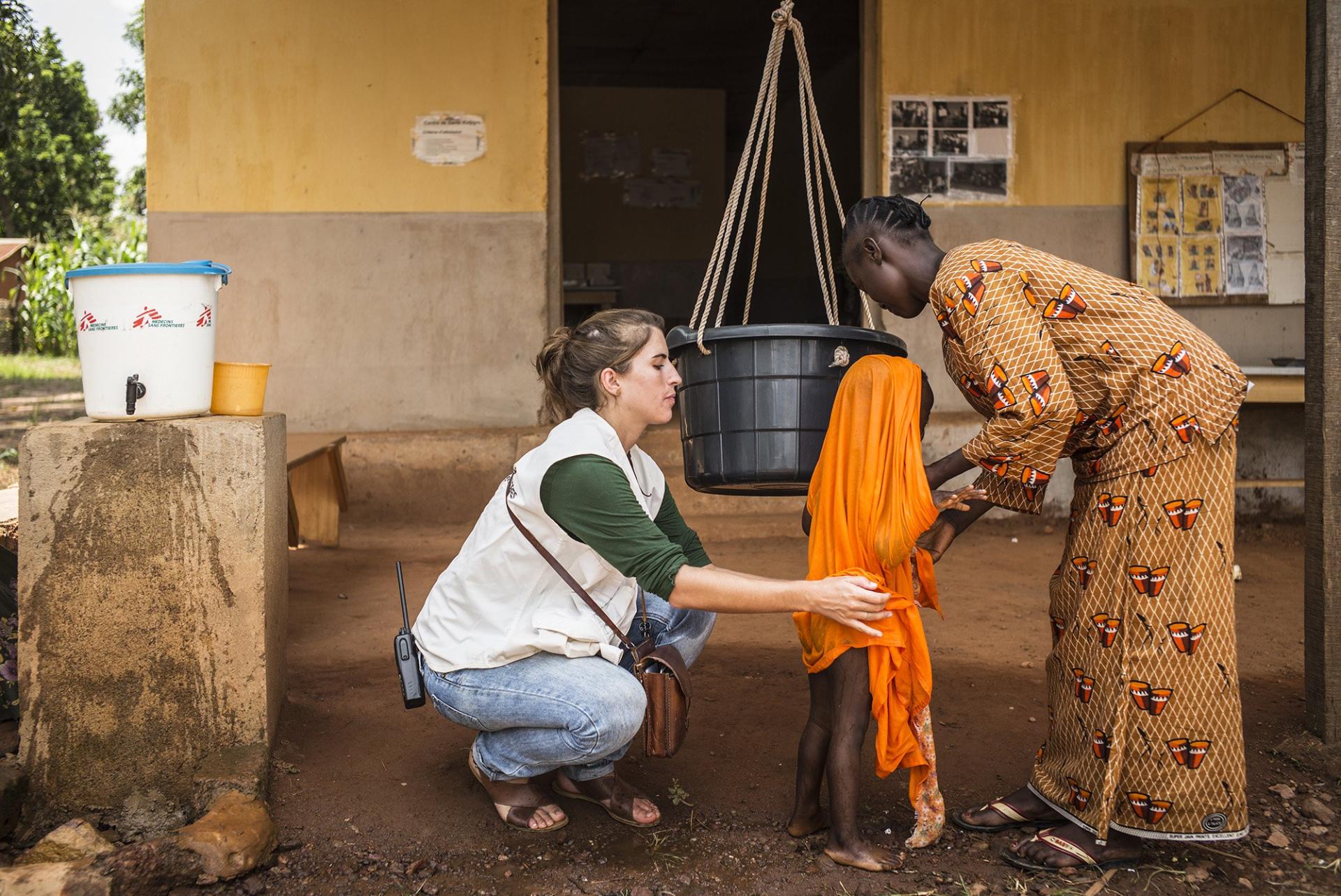“Being a nurse brings out the humanity in you”. These are the words of Philomena Obiefuna, a Nigerian nurse caring for malnourished children in the country’s conflict-ridden Borno State.
A basic sense of humanity is something Doctors Without Borders (MSF) tries to bring to any community it strives to help, and nurses make that possible on a daily basis.
From cholera outbreaks to extreme violence, from providing basic care in deprived and remote communities to helping those forcibly fleeing their homes, one would be hard-pressed to find medical activities that are run by MSF where nurses are not involved.
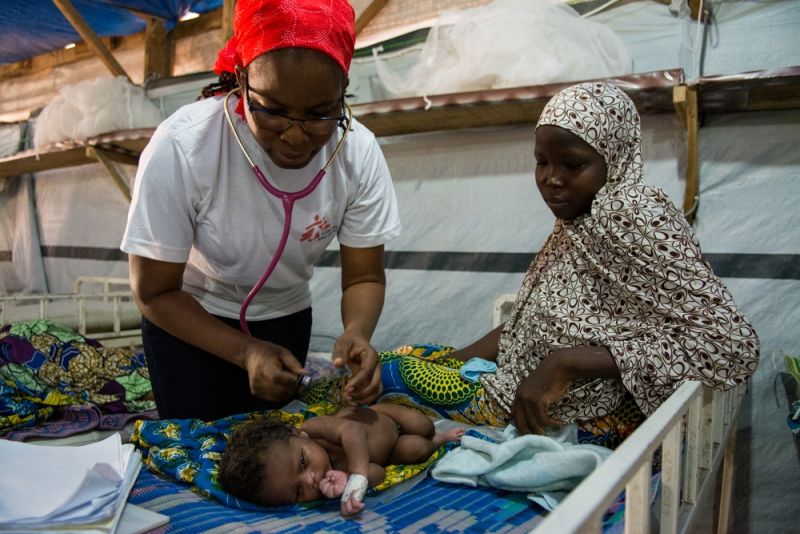
Actually, it would be quasi-impossible to find any project where nurses are not on the frontline, delivering life-saving care to patients, every hour, every day.
Whether they scrub-up as nurse anaesthetists in an operating theatre, inject a vaccine in thousands of children in one day, manage the functioning of a hospital ward, travel hundreds of kilometres to install a mobile clinic in isolated communities, or perform the first triage for people rescued from a sinking boat, they are usually the first and last face patients will see when in MSF care.
Despite MSF’s official name, there is a general acknowledgement that none of our activities spread out over 60 countries could exist without the daily commitment, passion and skills of MSF’s 8,843 active nurses.
Indeed, one in five MSF employees is a nurse and an overwhelming majority (close to 90%) are local staff from the countries of intervention, providing care to their own people.
For anyone who has spent time as a patient in any hospital, be it in the most deprived areas of South Sudan or in private structure in New York, most of the daily interactions you have will be with nurses.
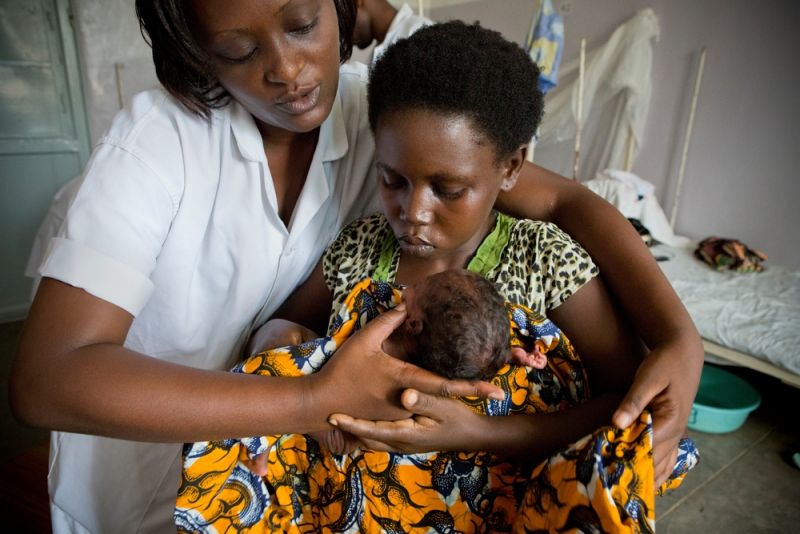
MSF activities are no exception: whatever the needs of patients are, they care.
In MSF, nursing care means a patient-centred approach, where all actions and support is adapted to suit the reality of the patient.
Obviously, there is the technical side of caring. Most of the clinical acts that patients will undergo will be provided by a nurse: carrying out resuscitations, monitoring vital signs, cleaning wounds and doing dressings, administering pills and injections, inserting intravenous lines, vaccinating, etc.
The care delivered should be evidence-based and of the highest possible quality. All the medical acts nurses perform can only be life-saving if they are performed well, at the right time and with the right equipment.
In MSF, the expectation of high-quality nursing care is supported by a number of guidelines, protocols and standard procedures to help them.
But beyond these procedures, the expertise, talent and skills of nurses play a critical role in the treatment of patients.
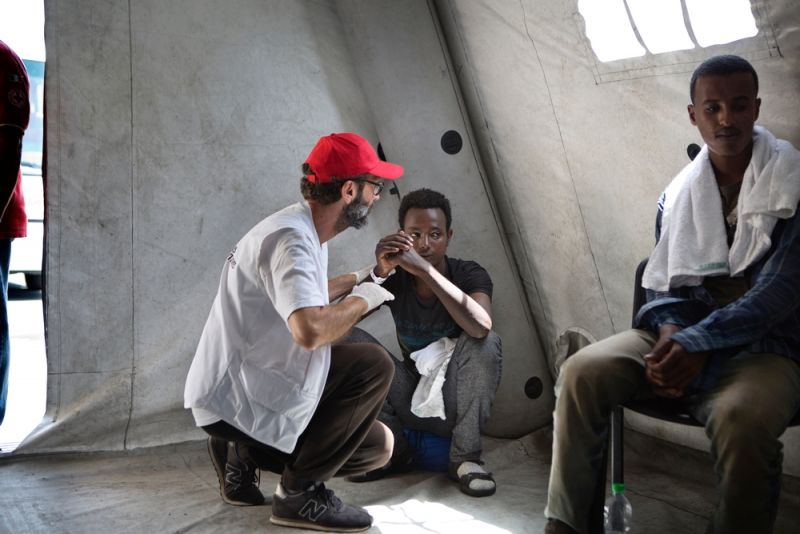
Another key element where nurses make a huge difference is by helping to patients to perform functions that they could easily do on their own if they were healthy enough or had the will and knowledge to do so.
These functions include seemingly basic things like breathing normally, eating and drinking, eliminating body wastes, sleeping and resting or maintaining body temperature within normal range.
These all contribute to allowing the patient to recover and regain autonomy as soon as possible.
Nurses are also the ears to listen to patients’ stories, fears and hopes. They are the shoulders to cry on when family members, unfortunately, lose a loved one to injury or disease.
They are the counsellors when patients lose faith in their possible recovery. They are the desperately needed smile in a stressful situation. They simply care for people.
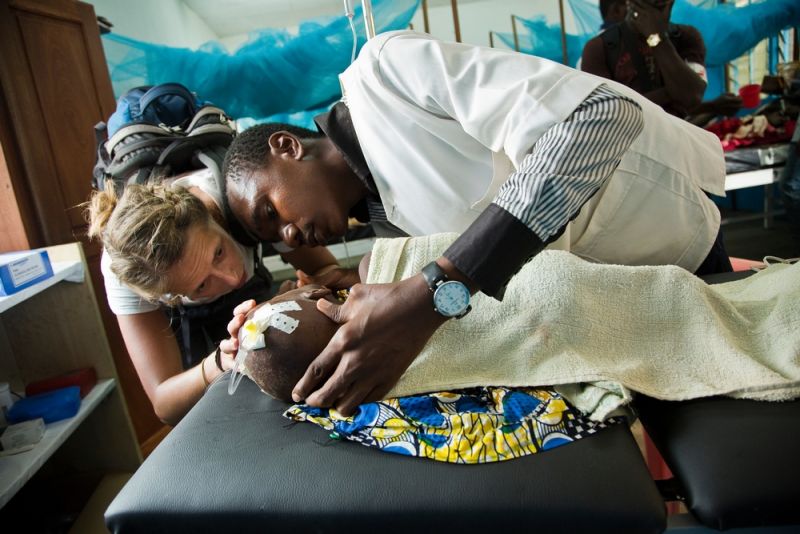
Ahmad Nabil, an Iraqi nurse working with internally displaced people fleeing conflict in Northern Iraq explains it well: “As a nurse, my speciality is to provide medical services, but sometimes being listened to is what really helps these people”.
Last but not least, nurses in MSF can become managers. Whether they become a team leader in a mobile clinic, hospital director, project manager or even general director, their hands-on attitude with patient care at the core of their approach will always accompany them and guide their decisions and their management.
MSF would not exist without nurses, and if our doctors have no borders, our nurse definitely have no limits. The extraordinary work was done by these professionals sometimes lacks the recognition it deserves, but anyone who has witnessed their daily commitment and passion can testify of the difference they make.
But for MSF nurses, like any nurse in the world, the best reward is probably the one, sometimes subtle, they get from patients themselves.
In the words of Michael Shek, a British nurse who worked in places like South Sudan and Syria: “In a lot of the places where MSF works, people literally have nothing, and being there and being able to alleviate their suffering, and seeing the smile on their faces when they leave your facility is on one of the most joyful things you could ever see”.
Read more: MSF celebrates International Nurses' Day
